View some new content by the EHSRC!
This video focuses on how to read a Consumer Confidence Report:
We also have 5 videos of the Research Translation Mini Series, they can be viewed here.
Environmental Health Sciences Research Center
University of Iowa College of Public Health
View some new content by the EHSRC!
This video focuses on how to read a Consumer Confidence Report:
We also have 5 videos of the Research Translation Mini Series, they can be viewed here.
Members of the EHSRC, along with partners from around the state, have released the 2019 Iowa Climate Change Statement, focusing on extreme heat and heatwaves.
View the statement document here
View all of the Iowa Climate Change Statements from previous years here
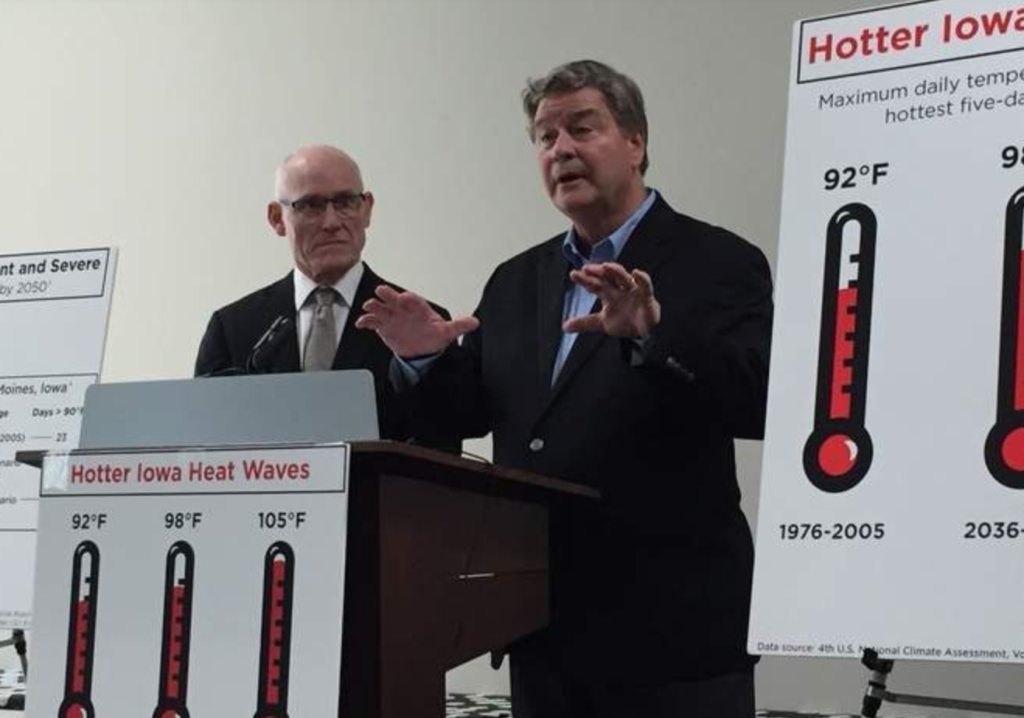
Press Coverage of the Statement
Cedar Rapids Gazette- Iowa scientists, educators warn time running out to combat climate change
Des Moines Register, written by EHSRC Member Dr. Jerry Schnoor –
Fridays at 10:45 am View info here
Research Translation Mini Seminar Series view poster here
Specific Aims review meetings are available upon request.
Fall 2019 dates are:
September 12- 5 pm in Mt. Vernon
September 17- 7 pm in Fairfield
October 17- 5 pm in Mt. Vernon
October 22- 7 pm in Fairfield
November 14- 5 pm in Mt. Vernon
November 19- 7 pm in Fairfield
(Lenexa, Kan., Aug. 14, 2019) – Today, the U.S. Environmental Protection Agency (EPA) announced the University of Iowa will receive a $1.07 million EPA Farmer to Farmer Cooperative Agreement to fund a project that improves water quality, habitat, and environmental education.
The University of Iowa will receive $1,064,926 for its project, “Connecting Rural and Peri-Urban Farmers to Demonstrate and Disseminate Innovative Nutrient and Sediment Reduction Practices.” The university will partner with rural farmers and urban consumers in Johnson and Iowa counties to demonstrate innovative nutrient and sediment reduction practices. To maximize the ability to demonstrate how practices perform through intensive water quality monitoring, this project will focus on oxbow lake restorations, alternative tile intakes, and nitrogen-removing wetlands and ponds. These practices also provide flood storage, which watershed residents have identified as a high priority.
“These Farmer to Farmer grants will promote innovative, market-based solutions for monitoring and improving water quality throughout the Gulf of Mexico watershed,” said EPA Administrator Andrew Wheeler. “These grants are an important part of our efforts to support America’s farmers in a manner that strengthens both American agriculture and the protection of our nation’s vital water resources.”
“Farmer to Farmer Cooperative Agreements directly support science and technology-based water quality initiatives needed to protect our watersheds, while also maintaining a vital agricultural economy,” said EPA Region 7 Administrator Jim Gulliford. “Here in Region 7, a combined $3.15 million in funding will support Iowa in the restoration and installation of wetlands, as well as the use of cover crops, to help provide measurable water quality improvement to waterways across Iowa and further downstream in the Gulf of Mexico.”
“The College of Engineering, Iowa Flood Center, and IIHR-Hydroscience & Engineering at the University of Iowa are excited to partner with rural farmers and urban consumers in Johnson and Iowa counties to demonstrate innovative nutrient and sediment reduction practices in Iowa,” said University of Iowa Vice President for Research Marty Scholtz. “This grant recognizes the university’s national leadership in water research. The $1.07 million from EPA will leverage watershed restoration funds from the $97 million Iowa Watershed Approach project to create measurable water quality improvements in stream segments within the Lower Iowa River watershed.”
A ceremony honoring the Iowa recipients took place today at the Iowa State Fair and was led by EPA Region 7 Administrator Gulliford. EPA anticipates awarding seven Gulf of Mexico Division cooperative agreements totaling more than $7.5 million to fund projects that improve water quality, habitat, and environmental education in the Gulf watershed.
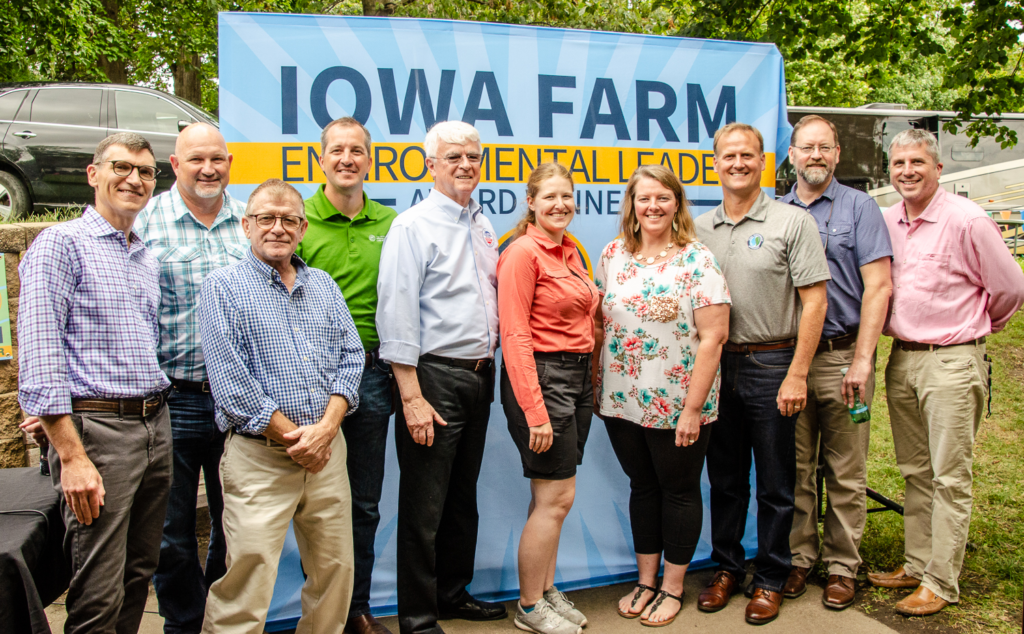
Since 2018, approximately $9.5 million has been awarded to support novel or innovative agricultural techniques, methods or approaches through EPA’s Farmer to Farmer Cooperative Agreements. These projects support farmer-led and/or farmer-focused organizations with experience implementing programs and demonstration projects through collaboration with farmers. The projects will center around innovative monitoring systems that will measure and report field-scale water and nutrient dynamics to farmers in support of informed crop management decisions. The program supports science and technology-based water quality initiatives needed to protect watersheds while also maintaining a vital agricultural economy.
The Clean Water Act provides authority and resources that are essential to protecting water quality in the Gulf of Mexico and larger Mississippi River Basin. EPA’s regional offices and the Gulf of Mexico Division work with states to continue to maximize the efficiency and utility of water quality monitoring efforts for local managers by coordinating and standardizing state and federal water quality data collection activities in the Gulf region. Enhanced monitoring and research are needed in the Gulf Coast region to make data more readily available.
See article as posted on EPA website
On June 19-21, 2019, the Environmental Health Sciences Research Center (EHSRC) hosted the annual meeting of the 23 national NIEHS Core Centers funded to conduct research, training and community engagement in the environmental health sciences. The meeting is traditionally hosted at one of the Center sites, and this year, the University of Iowa’s EHSRC was selected.
On the evening of June 19, a small delegation of meeting participants from NIEHS and UI toured three local farms – Morning Glory Farms, Broulik Farms and Mallie Farms – to discuss current farming practices in the Midwest. Following, a community forum which attracted approximately 110 people was held in Mt. Vernon, Iowa, where a series of speakers talked about water quality concerns in the state.
Over the course of the next two days, approximately 200 participants joined the full meetings in the College of Public Health Building, with a social event at Hancher Auditorium on the evening of June 20.
The conference agenda included sessions for the Community Engagement Cores, the Center Administrators, and the scientific community. Keynote presentations were delivered on the first day by Dr. Jerald Schnoor, UI Department of Engineering on A new paradigm for supplying safe drinking water, and Dr. Detlef Knappe from North Carolina State University on Drinking water contaminants in the Cape Fear watershed.
Concurrent breakout sessions were held on a variety of topics including Disaster Research Response, Emerging Issues with Pesticides, and Reporting Back Research Results, among others. Poster sessions featured the research of early stage investigators, and New EHSCC Research was highlighted in a series of lightning presentations on Day 2. In addition, three presentations and a panel discussion were held on Emerging issues with electronic nicotine delivery systems (E-cigarettes).
NIEHS Director, Dr. Linda Birnbaum delivered a stimulating presentation on perfluoralkyl substances, an emerging class of water pollutants, entitled PFAS: Emerging but Not New.
(Article by Nancy Wyland)
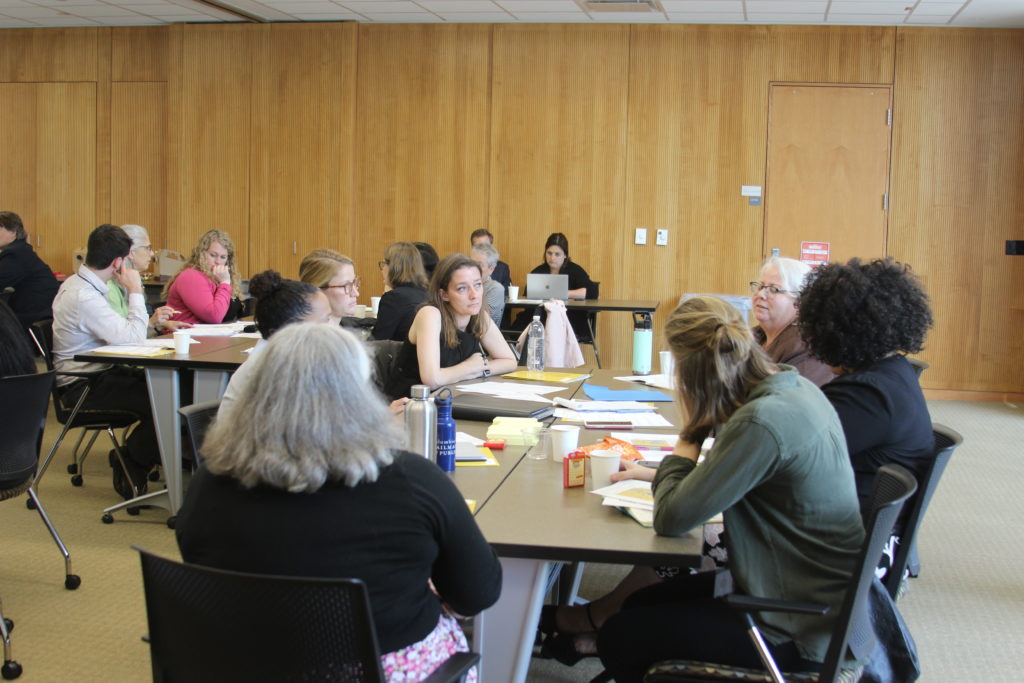
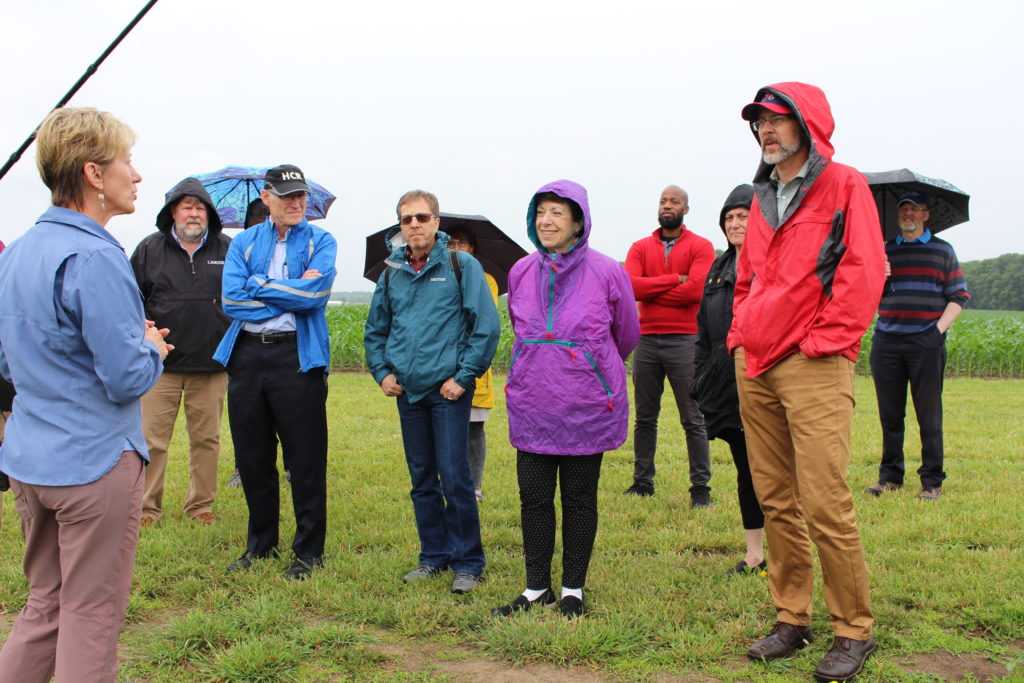
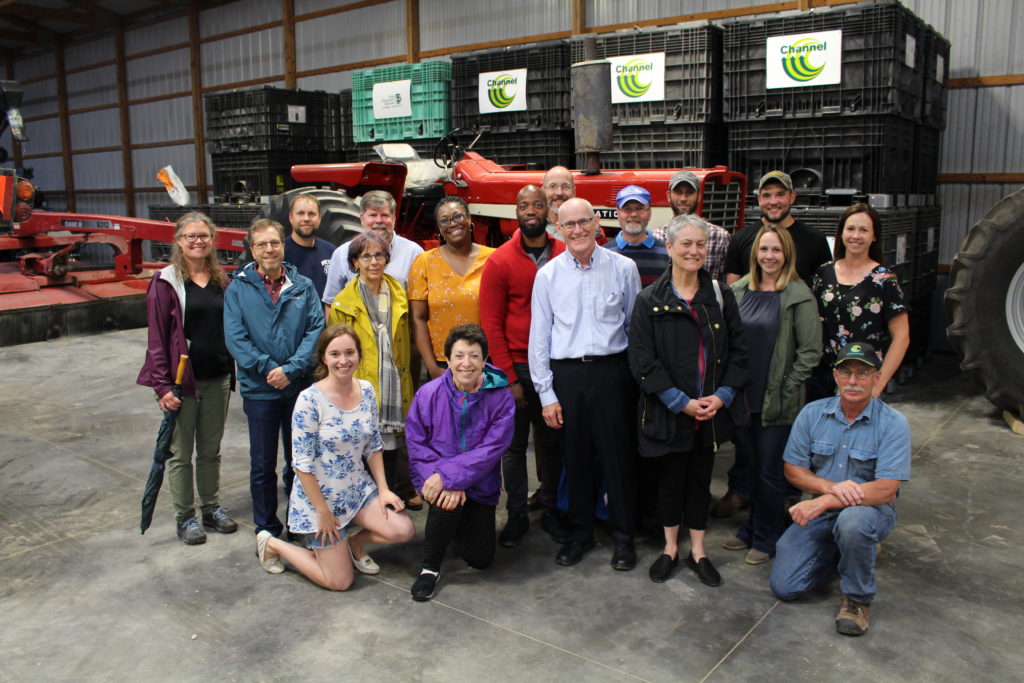
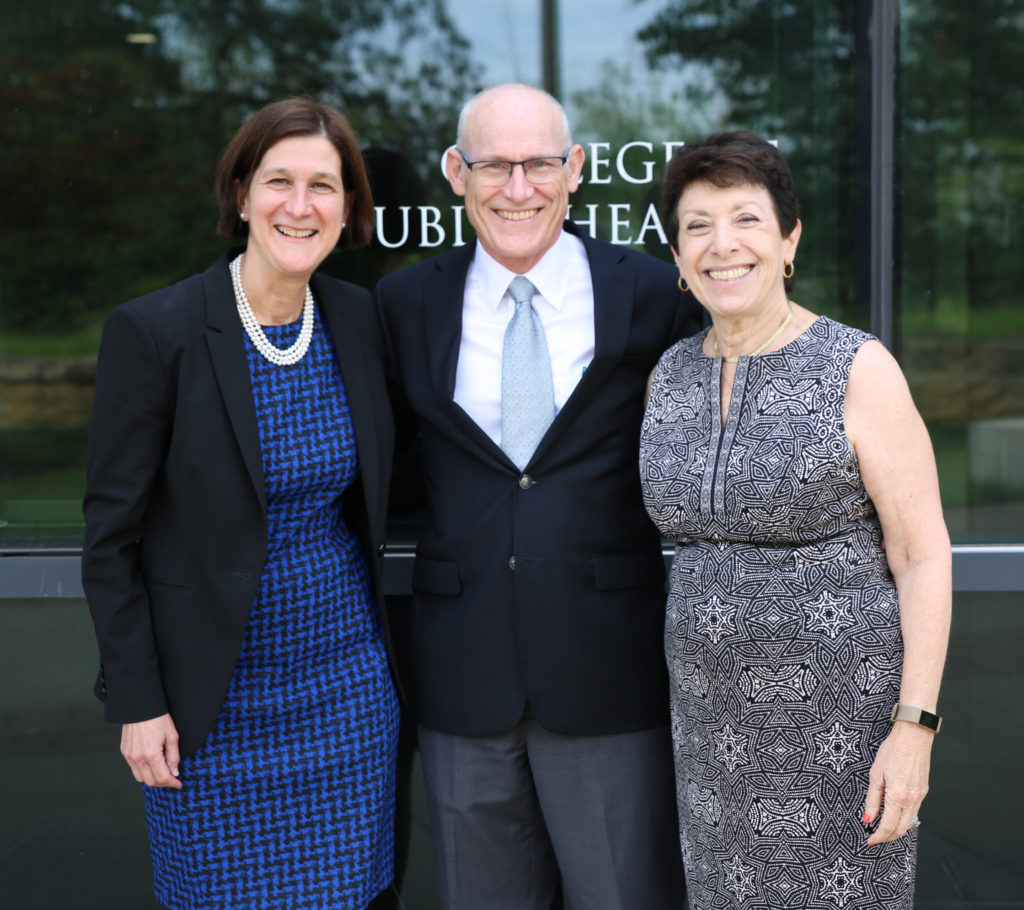
For more information on the program and speakers view the meeting booklet here: EHSCC 2019 Annual Meeting Program Booklet
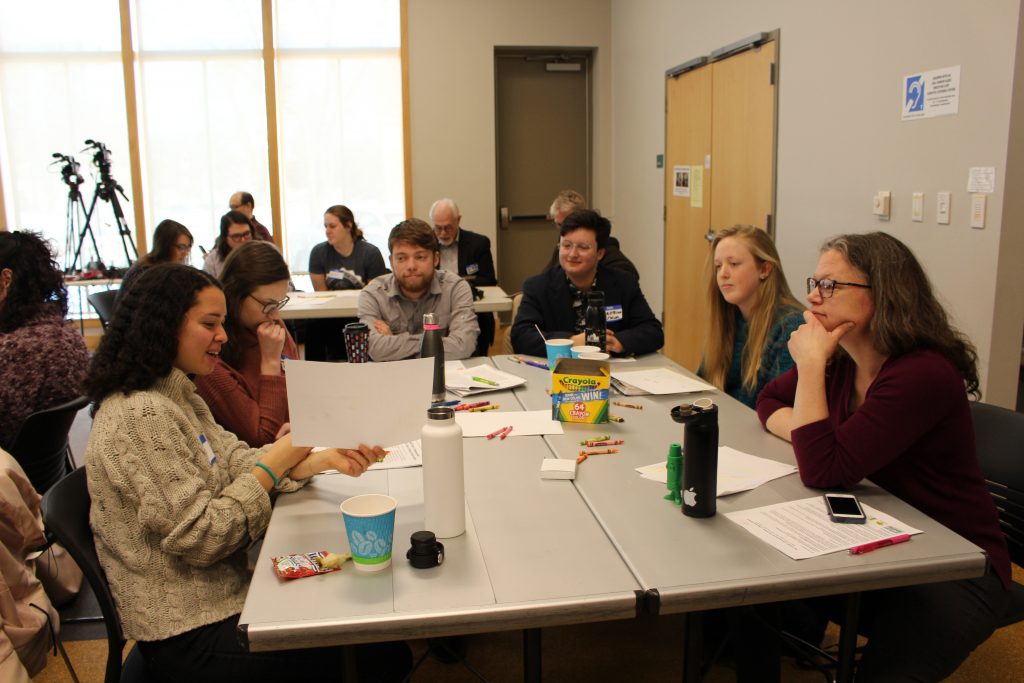
The Environmental Health Sciences Research Center (EHSRC) hosted more than 40 journalists, researchers, and students on March 5, 2019, to discuss challenges and opportunities in the field of science communication and environmental reporting. The summit, held at Drake Community Library in Grinnell, Iowa, aimed to increase journalists’ interest in reporting about environmental issues, as well as to help researchers better communicate effectively to general audiences.
Part of the mission of the EHSRC Community Engagement Core is to improve environmental health literacy. Bringing together journalists with environmental health researchers is one way to increase the public access to science. For this event, the EHSRC collaborated with IowaWatch, the UI School of Journalism and Communications, the Center for Health Effects of Environmental Contamination (CHEEC), and the Center for Prairie Studies at Grinnell College.
Speakers included journalists Amy Mayer from Iowa Public Radio and Lyle Muller from IowaWatch along with University of Iowa faculty and researchers from the School of Journalism and Mass Communication and Colleges of Engineering, Medicine, and Public Health. Chris Martin from the Department of Communication Studies and Digital Journalism at the University of Northern Iowa and his daughter, a student journalist from the award-winning Cedar Falls High School newspaper, The Tiger Hi-Line, gave a presentation about engaging high school student journalists in environmental reporting.
Journalists from media outlets across the state participated, including the Dubuque Telegraph-Herald, The Des Moines Register, Estherville News, the Iowa City Press-Citizen, and Iowa Public Radio. Numerous students were in attendance as well with representation from the University of Iowa, Iowa State University, Grinnell College, and Muscatine Community College.
The event included panel discussions about science in the media and nitrates in water, hands-on activities about environmental storytelling, and a brainstorming session to generate environmental topics for future reporting. Darrin Thompson, a PhD candidate in occupational and environmental health, discussed his research on neonicotinoids, and Peter Thorne, professor and head of occupational and environmental health and director of the EHSRC, gave a presentation about his experiences as chair of the EPA Science Advisory Board. Participants also engaged in a group literature discussion to comment on real stories that have been published recently in Iowa.
This story is also published on the College of Public Health Website
You can view 5 of the sessions from the Environmental Journalism Summit. View them here
Congratulations to Dr. Gregory LeFevre for winning the prestigious National Science Foundation CAREER award. Dr. LeFevre is an assistant professor in the Department of Civil and Environmental Engineering and a researcher a the IIHR- Hydroscience & Engineering Research Center.
The $500,000 project is titled “Toward Resilient Stormwater Quality Practices: Biotransformation for Sustained Removal of Emerging Contaminants” and it will be funded through 2024.
For more about this award, view the write up on the University of Iowa website and the project abstract.
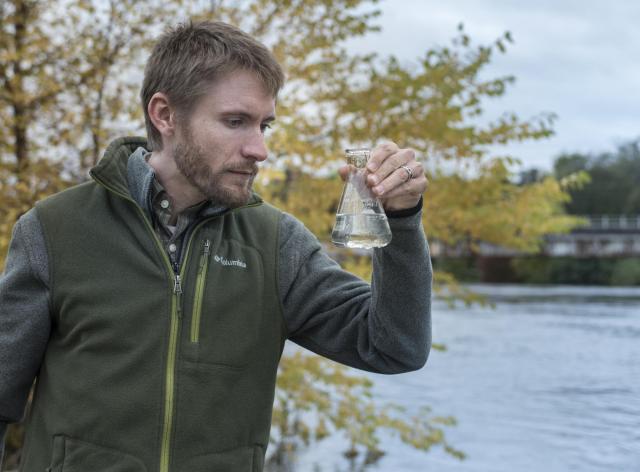
Photo courtesy of UI College of Engineering
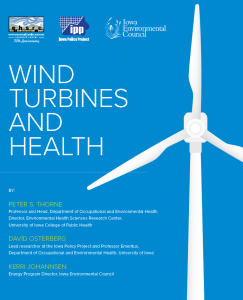
The Environmental Health Sciences Research Center has collaborated with the Iowa Policy Project and the Iowa Environmental Council to publish a paper about Wind Turbines and Health. Read them here!
HUMAN TOXICOLOGY AND EHSRC RESEARCH SEMINAR (TOX:7180) FOR SPRING 2019
Time: Friday 10:45 am
Location: 283 EMRB
January 25 – Are mitochondria bystanders in malignant brain tumor?
Corinne E. Griguer, PhD
Free Radical & Radiation Biology Program, Department of Radiation-Oncology, Carver College of Medicine, University of Iowa
February 1 – Protecting the organelle at the expense of the organ? ER stress in fatty liver diease
Thomas Rutkowksi, PhD
Department of Anatomy and Cell Biology, Carver College of Medicine, University of Iowa
February 8 – Emerging options in publishing: Megajournals, micropublications, preprint servers, publishing data sets, ‘negative’ results, etc.
Mirko von Elstermann
Hardin Library for the Health Sciences
February 15– Regulation of outer membrane vesicle-induced cytotoxicity by LPS-recognition proteins
Jason H. Barker, MD
Department of Internal Medicine – Infectious Diseases, Carver College of Medicine, University of Iowa
February 22 – Enhancing efficacy of peptide receptor radionuclide therapy for neuroendocrine tumors
Dongyoul Lee
IDGP in Human Toxicology, University of Iowa
March 1- Early Life Pesticide Exposure: Behavioral and Neuroanatomical Outcomes
Jill L. Silverman, PhD
MIND Institute and Department of Psychiatry and Behavioral Sciences, UC Davis School of Medicine
March 8 – Endocrine disruptor effects during early development on the structure of the prefrontal cortex and cognitive behavior
Janice M Juraska, PhD
Department of Psychology, Program in Neuroscience and Beckman Institute affiliate, University of Illinois
March 10-14 – 58th Annual Meeting and ToxExpo, Baltimore, Maryland
March 17-24 – Spring Break
March 29 –Weather and Risk of Urinary Tract Infections and Pneumonia
Jacob E. Simmering, PhD
Division of Pulmonary, Critical Care and Occupational Medicine, Department of Internal Medicine, Carver College of Medicine, University of Iowa
April 5 – Prevalence of uranium series radionuclides in iowa groundwater resources
Dustin May
IDGP in Human Toxicology, University of Iowa
April 12 – TBN
Shailendra Giri, PhD
Department of Neurology, Henry Ford Hospital
April 19 – Endocrine disrupting chemicals: a costly public health threat with opportunities for policy prevention
Leonardo Trasande, MD
Division of Environmental Pediatrics, Department of Pediatrics and Environmental Medicine & Population Health, NYU School of Medicine
April 26 – Investigation of the anti-tumor responses of Toll-Like Receptor (TLR) agonists combined with EGFR targeted therapy and immunotherapy in head and neck squamous cell carcinomas
Yinwen Cheng
IDGP in Human Toxicology, University of Iowa
May 3rd – Organosulfates: A missing link between air pollution and Alzheimer’s disease?
Elizabeth Stone, PhD
Department of Chemistry, College of Liberal Arts and Sciences, The University of Iowa
Pamela J. Lein, PhD
Department of Molecular Biosciences, UC Davis School of Veterinary Medicine
Please contact Hans-Joachim Lehmler (at 335-4981 or hans-joachim-lehmler@uiowa.edu) for more information.